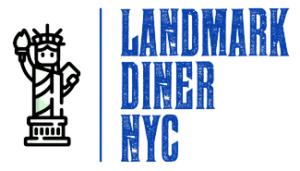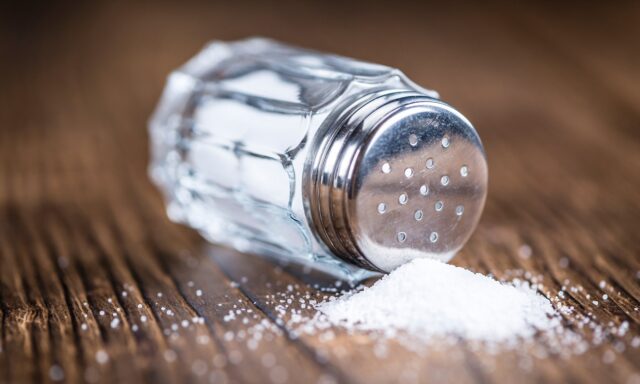The answer is yes, but only in extreme cases. Salty foods like chips and pretzels can cause stomach aches and vomiting if eaten too quickly or in large quantities.
The can salt cause digestive problems is a question that has been asked many times before. Salt can cause stomach upset, but it’s not always the salty food that causes the problem.
The body gets dehydrated when too much salt puts the body and kidneys out of sync. The body will remove water from your cells at this time. Too much salt may be to blame if you’re thirsty, nauseous, or have diarrhea or stomach cramps.
Why do I feel ill after eating salty meals, for example?
You seem to be swollen. Consuming too much salt causes water to be flushed from your cells, causing your stomach and other body parts, such as your fingers and toes, to swell. This may be more noticeable in the morning or after a very salty dinner.
Is it possible to consume too much salt and have diarrhea? This may include common table salt, rock salt, or high-sodium foods such as soy sauce. High sodium levels may also be caused by dehydration, which can occur as a result of excessive perspiration (due to a high temperature or high heat), vomiting, or diarrhea.
Also, what are the consequences of consuming too much salt?
The short-term effects of eating large quantities of salt are apparent quite quickly. Bloated hands and feet, as well as a swollen face, are common short-term adverse effects of eating too much salt. After a salty meal, some individuals get bloated due to water retention or feel overly thirsty.
How can you get rid of sodium?
Drink Plenty of Water Drinking water hydrates your body and helps you flush away sodium, which is particularly important if you have too much salt in your system. Our kidneys can’t function properly if we don’t drink enough water, and we can’t flush out extra salt as a result.
Answers to Related Questions
How do you tell when you need extra salt in your body?
Blood pressure is usually lower in those who have the greatest demand for salt. A healthy blood pressure reading would be about 115/75. When moving from kneeling to standing, someone with low blood pressure may need salt and may feel light-headed. The pH of your urine may also suggest a salt deficiency.
Is it possible to get dizzy from too much sodium?
According to recent study published in the Journal of Clinical Hypertension, a high salt intake may induce lightheadedness while standing. To avoid lightheadedness and other problems like high blood pressure, limit your salt intake to no more than 2,300 milligrams per day.
Is it true that salt causes inflammation?
In mice, high-salt diets increase tissue inflammation and aggravate autoimmune illness. High sodium consumption has been linked to an enhanced inflammatory response and target organ damage in individuals with hypertension and myocardial infarction.
What should I do if I consume an excessive amount of sodium?
Do you have a stomach ache? What to Do If You’ve Overindulged in Salt
- Hydrate, hydrate, and hydrate some more. Water is beneficial to your health in a variety of ways, but after eating too much salt, it should become your new best buddy.
- Potassium should be consumed in large quantities. You can take supplements, but eating potassium-rich fruits and vegetables naturally reduces sodium levels.
- Work up a sweat.
- Reduce the size of the piece.
What effect does salt have on the human body?
Salt causes your body to retain water. The excess water retained in your body when you consume too much salt increases your blood pressure. The more the load on your heart, arteries, kidneys, and brain, the higher your blood pressure is. Heart attacks, strokes, dementia, and renal problems may all result from this.
What foods have a lot of salt in them?
Foods High in Sodium
- Bacon, cold cuts, ham, frankfurters, sausage, sardines, caviar, and anchovies are examples of smoked, cured, salted, or tinned meat, fish, or fowl.
- Burritos and pizza are examples of frozen breaded meats and meals.
- Entrees from a can, such as ravioli, spam, and chili.
- Nuts with salt.
- Beans that have had salt added to them in the can.
Is it true that water lowers salt levels?
Staying hydrated can also help you feel less bloated. Drink plenty of water to drain salt from your kidneys.
Is it true that if I sweat a lot, I require extra salt?
A: The short answer is “yes,” but it all depends on how much you exercise and sweat, as well as how much salt you consume previously. Salt is a major source of sodium in our diet (sodium chloride). You must consume enough salt in your daily diet to replace the sodium you lose via urine and perspiration.
Is it possible to get diarrhea from eating too quickly?
Because the contents of the stomach empty excessively rapidly into the small intestine, dumping syndrome is also known as rapid gastric emptying. Eating may cause symptoms like diarrhea, particularly if the meal contains a lot of sugar.
If I have watery diarrhea, what should I eat?
Foods that are bland and may assist with diarrhea include:
- Oatmeal, cream of wheat, or rice porridge are examples of hot cereals.
- bananas.
- applesauce.
- rice, simple white
- Toast or bread
- potatoes, boiling
- crackers with no seasoning
What is a good way to stop diarrhea quickly?
Diarrhea may usually be handled at home and will go away within a few days. To assist with symptoms, drink lots of water and eat the “BRAT” diet (bananas, rice, applesauce, and toast). Make sure that babies and children are well hydrated. Pedialyte electrolyte solutions may be beneficial.
When you have diarrhea, what should you avoid eating?
When you have diarrhea, stay away from the following foods:
- dairy products and milk (including milk-based protein drinks)
- meals that are fried, fatty, and greasy
- meals with a kick
- prepared meals, particularly those containing additives
- Pork and veal are two of the most popular meats.
- sardines.
- veggies that are still raw
- rhubarb.
What exactly is it about Chinese cuisine that makes you puke?
It’s now known as the MSG symptom complex by doctors. MSG (monosodium glutamate) is a taste enhancer used in food. It’s often utilized in fast food restaurants and pre-packaged meals. Despite many anecdotal accounts of MSG-related illnesses, scientific study into the condition is lacking.
What foods may induce a loose bowel movement?
Diarrhea causes
- Sugar. Sugars cause the stomach to secrete water and electrolytes, causing bowel motions to loosen.
- Dairy products. Lactose is a sugar that some individuals have trouble digesting.
- FODMAPs.
- Gluten.
- Foods that are fried or greasy.
- Foods that are hot.
- Caffeine.
- Image courtesy of Getty Images/5432action.
When I eat veggies, why do I have diarrhea?
Foods with a High Fiber Content
Yes, however eating too much fiber may cause excessive gas and diarrhea. Broccoli, Brussels sprouts, cabbage, carrots, artichokes, and peas are among high-fiber veggies.
How fast can food pass you by?
Food passes through your digestive system in 24 to 72 hours on average. Food passes through your digestive system pretty rapidly at first. The meal has passed through your stomach, small intestine, and large intestine in 6 to 8 hours.
What happens if you consume an excessive amount of potassium?
It’s possible to have too much potassium in your blood. Potassium has an impact on how your heart’s muscles function. When you have too much potassium in your body, your heart may beat irregularly, which may lead to a heart attack in the worst-case scenario. If you believe you are suffering a heart attack, dial 911 for immediate assistance.
Salt is a mineral that we need for our body to function properly. However, some people might be sensitive to salt and it can cause an upset stomach. Reference: can sea salt upset your stomach.
Frequently Asked Questions
Why does salt upset my stomach?
Salt is a type of salt that can cause gastrointestinal distress.
Can salt cause stomach problems?
Salt does not cause stomach problems.
What are the side effects of too much salt?
Too much salt can cause hypertension, heart disease, and other health problems.
Related Tags
- can too much salt cause gastritis
- eating too much salt side effects
- why does salt make my stomach feel better
- i ate too much salt what should i do
- how long does salt bloat last




